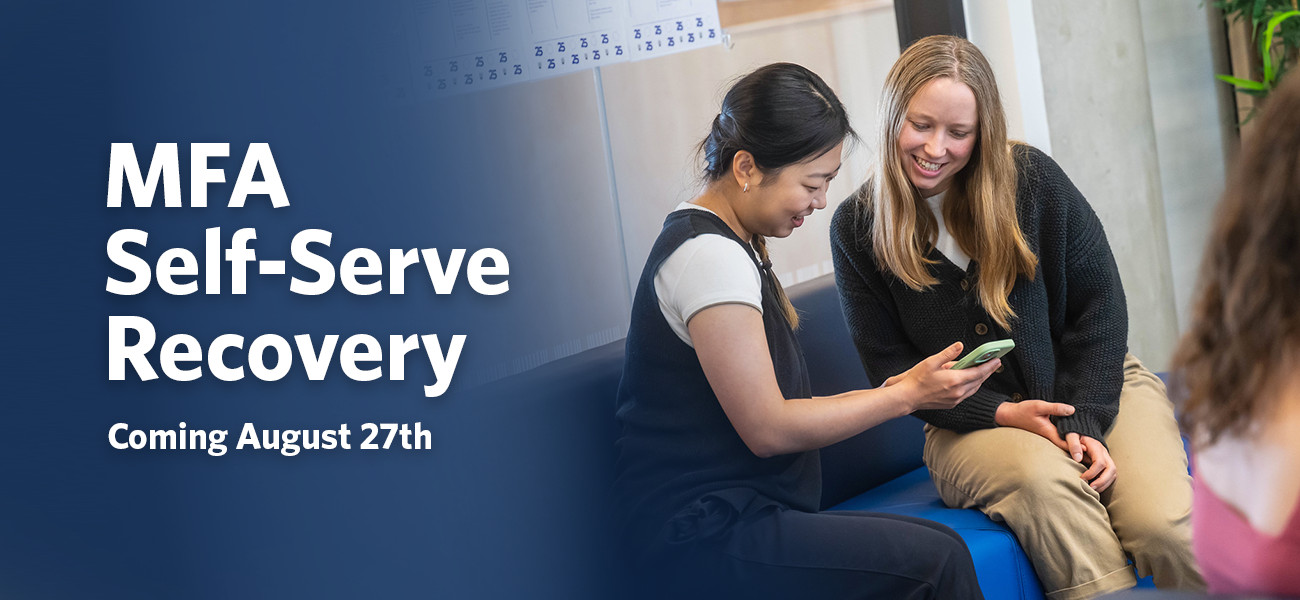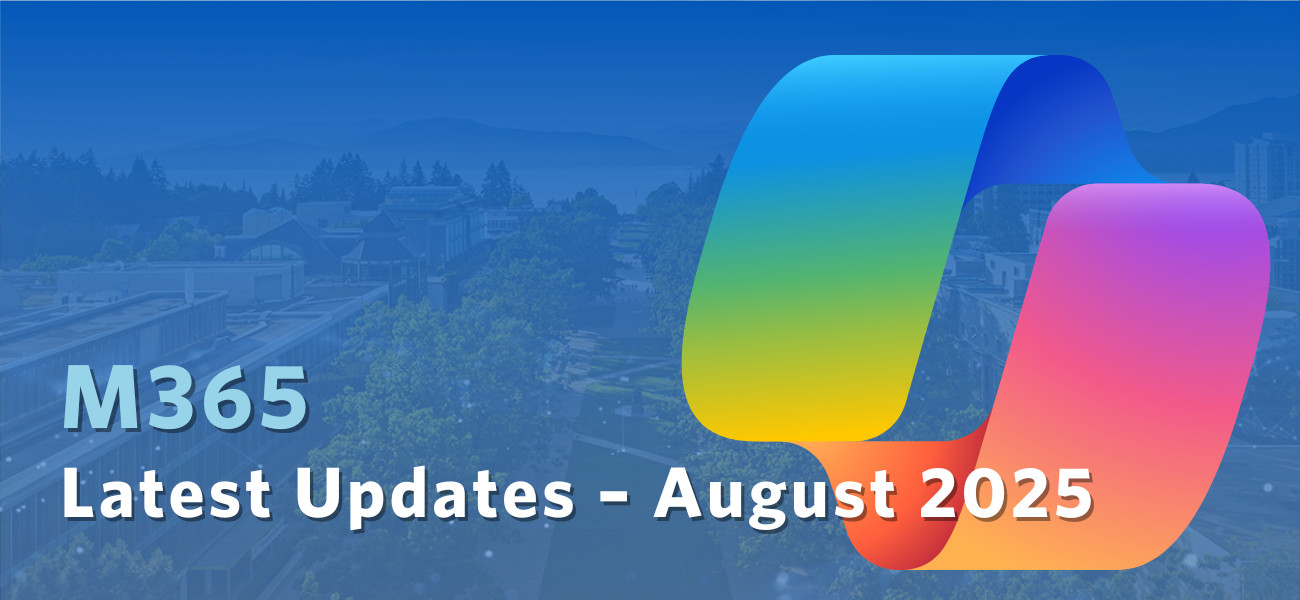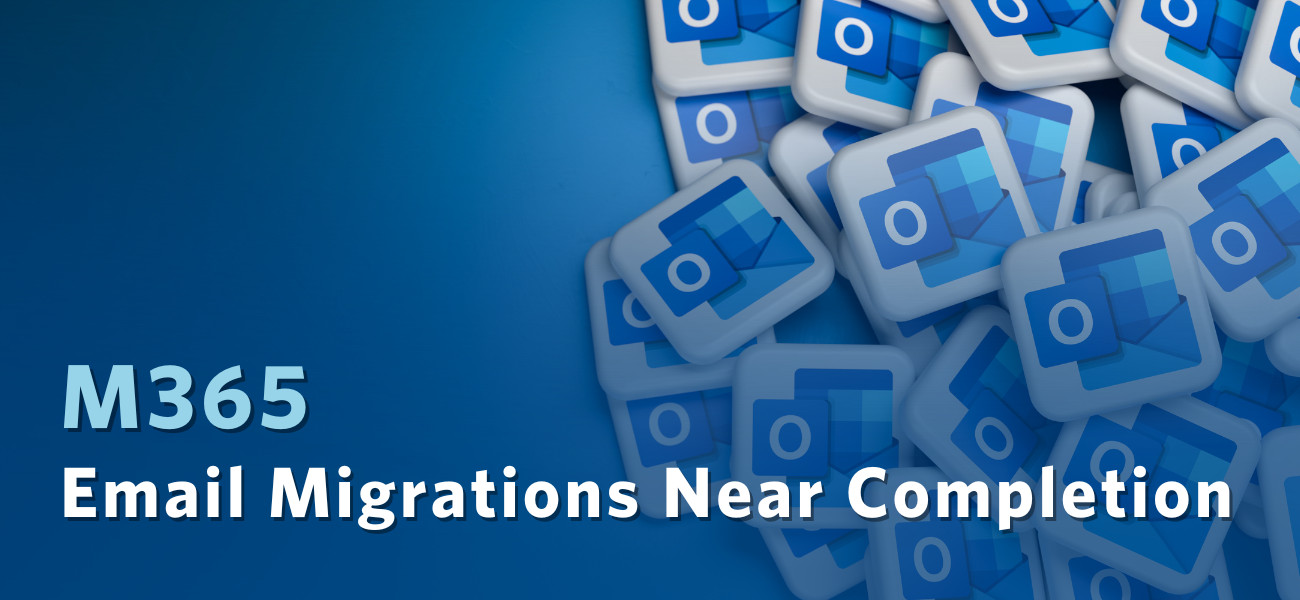We have some important updates to share with you as we continue our transition to the Microsoft 365 cloud environment.
New M365 Portal & Teams Experience
Microsoft has refreshed the web experience when you reach portal.office.com, now called the Microsoft 365 Copilot Chat. Copilot Chat is easier to find and use online, with controls to pin/unpin online versions of Microsoft OneDrive, Word, Excel and PowerPoint, amongst others.
Microsoft has also updated Teams with new customizable views that allow you to combine your Chats and Teams apps into a single app for a cleaner and simplified experience. Visit The new chat and channels experience in Microsoft Teams - Microsoft Support for details on this change.
Need to learn more?
The M365@UBC team provides Copilot Chat and Advanced M365 Productivity training sessions monthly. Register here: General Training for Microsoft 365 | UBC IT
Microsoft Bookings: Personal Pages Launch August 18
We're launching Microsoft Bookings to the UBC community on August 18, starting with Personal Bookings pages. Personal pages are great for student advising, office hours, and one-to-one consultations; no back-and-forth scheduling needed.
Shared Bookings pages will follow later this year once additional testing is completed. Shared pages allow users to book a time slot with one of many individuals offering a service, such as counselling sessions.
Get Started
Create a Personal Bookings meeting type:
https://ubc.service-now.com/kb_view.do?sysparm_article=KB0019519
Share your Personal Bookings page & meeting types:
https://ubc.service-now.com/kb_view.do?sysparm_article=KB0019521
Safer by Design: Removing Access to the Microsoft 365 Add-Ins Store August 21
To reduce risk and improve compliance, the M365@UBC team will remove access to the public Microsoft 365 Office Add-Ins Store for Word, Excel, and PowerPoint web add-ins on August 21. This restores our previous control that prevented installing unvetted third-party add-ins directly from the store.
Why this change?
Some store add-ins can read or modify document content and may transmit data to third-party services. Disabling direct store installs helps protect university data and ensures add-ins are evaluated case-by-case before being enabled.
What to expect?
- The Add-Ins Store will be unavailable for installing new web add-ins.
- Previously installed add-ins may behave differently depending on the app and platform, and how it was installed. Unauthorized web add-ins will no longer work.
- Authorized Add-ins will appear in the Admin-Managed section when adding Add-ins in Word, Excel and PowerPoint.
- You may see inconsistencies between web and desktop for certain add-ins; this is a vendor limitation we're tracking.
Note: This change applies to web add-ins (cloud extensions for Word/Excel/PowerPoint). It does not apply to traditional local (COM) add-ins installed on your computer.
If you rely on a web add-in:
We'll provide a request path for business-critical add-ins. Requests with a clear business need - where lack of access blocks essential work — will be prioritized for review and implementation.
Need help?
The UBC IT Helpdesk is here for you. Call 604.822.2008 or submit a support ticket at it.ubc.ca/selfservice.
Stay tuned for more updates as we navigate the M365 environment to help you do your work easier.








